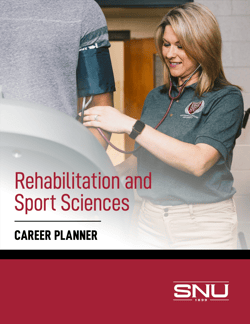-
Programs
Not Sure Where to Start?
- Associate Programs & Certificates
- General Studies
- Associate of Arts in Business
- Physical Therapist Assistant
- Professional Services & Certificates
- Special Education Bootcamp
- View All
- Undergraduate Programs
- Business Administration
- Criminal Justice
- Cybersecurity
- Education
- Family Studies and Gerontology
- Healthcare Administration
- Organizational Leadership
- Accelerated General Education
- View All
- Graduate & Doctorate Programs
- Doctorate of Education in Administration & Leadership
- M.A. Administration of Special Ed.
- M.A. Applied Psychology
- M.A. Educational Leadership
- M.A. Sports Management & Administration
- M.A. Teaching
- MBA, 12- 18 months
- MBA - Healthcare Administration
- Master of Organizational Leadership
- M.S. Counseling Psychology
- M.S. Exercise Science - Health & Human Performance
- M.S. Exercise Science - Wellness
- M.S. Instructional Design Technology
- M.S. Management
- M.S. Physician Assistant
- Alternative Certification (Teaching or Special Ed.)
- View All
- Resources
- Tuition & Aid
- Military
"The professors teaching the curriculum...time frame for each course... hands-on approach in certain classes...there are a lot of strengths! Assignments are challenging enough to promote outside research, thus learning the topics more in-depth. Professors were well educated on the subjects taught."
Erica Becerra
MSES Graduate
- PROGRAM OVERVIEW
- UPCOMING START DATES
- REQUEST MORE INFO
- FREQUENTLY ASKED QUESTIONS
- COURSE DESCRIPTIONS
- FACULTY
- ADMISSIONS
- LOCATIONS
- PROGRAM RESOURCES
Program Overview
The program is designed to prepare individuals to assume roles in government, community organizations, and healthcare settings. These individuals would provide educational and oversight services in the areas of health and wellness. This program includes personal and community health instruction, epidemiology, disease prevention, health behaviors, wellness, and exercise. Graduates will be able to seek grant funding for not-for-profit health organizations. All students will be able to analyze and interpret research data in health promotions.
Upcoming Start Dates
Request More Info
Fill out the form below and an enrollment counselor will reach out!
FAQs
Earning a degree while working full time or raising a family has never been more possible. Here’s why adult students are thriving and reaching their goals at SNU:
- Classes take place one night a week or entirely online.
- Students focus on one class at a time to ensure true mastery and prevent overwhelm.
- Students study alongside other adults in similar stages of life.
- Instructors with vast amounts of industry experience guide students through courses.
- Textbooks are delivered directly to your door at the beginning of each class.
- A dedicated student success advisor guides students through the duration of your studies.
This degree enables one to move into leadership roles within their organization or in the community.
We approach community health issues from a Christian worldview. We offer modular six-week courses, and this program is on-campus and online.
The tuition cost is $599.00 per credit hour for a 36-hour program.
A person with a degree in Health Promotion and Wellness typically engages in the community to provide health education and information to a wide variety of people - children to senior adults. Whether it is operating a community wellness center, private agency or working for the city or state department of health.
Agencies are looking for people to plan programming like the American Cancer Society, Senior wellness Facilities, Community, City, and State Health Departments, and organizations like the YMCA require program directors with their various age groups.
Health Promotion Educators, Grant writers, Facility directors, Health and Wellness program directors.
There is a wide range of salary given the variety of job possibilities ($60,000 - $80,000).
Each course is considered a full academic load. Therefore the time commitment will be about 15 hours per week. Certifications in Personal Training and Nutrition are available.
We have great connections in the community which enable students to interact with organizations and agencies to gain valuable experiences with community leaders. Students have been able to obtain advancement and opportunities by engaging with community leaders affiliated with the program.
SNU provides a high-quality education that fits into the schedule of a working adult. We have outstanding and expert instructors in each of our classes. The Christian environment provides a safe space to think critically about the issues in health promotion.
Courses
The Exercise Science curriculum is designed to give students an in-depth understanding of health and how it relates to promoting health within the community or achieving ultimate human performance. All students take core classes, choose an elective, and then take classes in their designated track.
Credit hours: 3
This course provides an overview of the various aspects of contemporary health, wellness concepts and human performance. The curricular emphases provides and overview of historical perspectives, current status of health promotion, ethical principles, exercise science and risk reduction.
Credit hours: 3
This course is designed to advance students’ written communication skills. Emphasis will be given to scholarly writing style, evaluation and synthesis of research, and APA citations and references.
Credit hours: 3
This course will discuss physical activity epidemiology in light of various diagnoses including heart disease, cerebrovascular disease, disease and mortality, obesity, chronic disease, cancer/immunology, musculoskeletal system, mental health, and special populations. Research and measurement concepts of physical activity, fitness, and maintaining an active lifestyle will be utilized.
Credit hours: 3
This course provides students with the opportunity to gain insight and understanding about the law and its implications on professionals in the fields of health, wellness, sport, and fitness.
Credit hours: 3
This course is a study of the physiological, psychological, and social aspects of physical activity for older adults. Topics covered include an overview of aging, benefits of physical activity throughout the lifespan, and fitness assessment and programming options for older adults.
Credit hours: 3
This course examines a range of topics on human nutrition including nutritional parameters of athletic performance, intervention planning, energy production, the energy nutrients, vitamins and minerals, principles of balanced diets, timing and composition of intakes, hydration, weight management strategies, and nutritional needs for special situations.
Choose one elective course.
Credit hours: 3
This course provides knowledge and application of the grant writing process with specific focus on the health and wellness fields. This will include the development of skills required for Request for Proposals, writing, budgeting and submission of grants. The course will provide examples of sources to obtain grants and the differences that exist among different granting agencies. Students will also have the opportunity to develop a project for program design, implementation and evaluation for a health related organization.
Choose one elective course.
Credit hours: 3
This course is an introduction to research methods to analyze professional literature in exercise science. The course will explore both quantitative and qualitative research methods, including descriptive and inferential statistics. Special emphasis will be given to planning, conducting, and reporting of research as well as applied statistical analysis and interpretation of data from the field of exercise science. Students will produce an original pilot research project including statistical design.
Health Promotion & Wellness Track
Health Promotion & Wellness Track
Credit hours: 3
This course will review the effectiveness of leadership in the planning process of health promotion programming. This course focuses on improving the health and well-being of persons in various settings. Leadership styles will be reviewed and their application in organizational culture that supports various wellness program settings such as corporate, government, and hospital.
Health Promotion & Wellness Track
Credit hours: 3
This course examines widely accepted theories, models and methods for facilitating health behavior change. Topics include, but are not limited to, the trans-theoretical model, positive psychology, motivational interviewing and mindfulness-based practices. Additionally, students will explore the research-supported impact of behavior change techniques on the prevention and management of chronic diseases and comorbidities, such as diabetes, obesity, depression and hypertension.
Health Promotion & Wellness Track
Credit hours: 3
This course examines the field of community/public health and the functions and interface of community health practices, services and agencies. It will also introduce students to diverse cultures and factors that include perceptions of health, disease, treatments and values. Emphasis is placed on understanding diversity and the need for cultural sensitivity in health care.
Health Promotion & Wellness Track
Credit hours: 3
This course examines corporate health promotion and planning can influence positive health behaviors in the workforce. Course curriculum will cover strategic and supportive services provided through corporate responsibility to reduce health care costs and chronic disease. This course provides health and wellness professionals with a practical framework for entrepreneurship, emphasizing key principles for business success. The student will develop a business plan to prepare for challenges they may face in starting their own health related business.
Health Promotion & Wellness Track
Credit hours: 3
This course is designed to provide students with the skills necessary to conduct laboratory and field tests used for assessing physical fitness components. It will focus on cardio respiratory fitness, muscular fitness, body composition, flexibility, and balance. The course emphasis is an integrative approach to technology for both individual and corporate wellness principles, techniques and application.
Health & Human Performance Track
Meet our SNU Faculty
Dr. Sylvia Goodman
Program Director
Sylvia Goodman, EdD, ATC, obtained her Master's degree in Athletic Administration from Miami University and completed her Doctorate from Boston University in 2009. Her dissertation work was a sports sociology study of spectator behavior and crowd violence in the Boston Garden during Bruins’ games. In addition to the Doctorate of Education, additional graduate hours were completed in Advanced Exercise Physiology from Univ. of Massachusetts, Boston and a post-doctorate certificate in Anatomical Sciences from Oklahoma University Health Science Center (2010).
Recent publications include “An Examination of Ethics Education in Sport Management Programs” at the American Kinesiology Association meetings (2017). Also accepted for the presentation was “A Comparison of Ethics Education in Graduate and Undergraduate Sport Management Programs at the North American Society of Sport Management Conference, (2018). Sylvia submitted a paper for the NASSM conference in May 2019 entitled The Utilization of Portfolio Assessment of Student Learning in Graduate Sport Management Education.
Dr. Goodman writes: “Upon completing my master's degree, I began my career as a faculty member and Head Athletic Trainer at Eastern Nazarene College. My professional service experience includes working as an athletic trainer for the Colorado Springs Olympic Training Center, the Pan Am Games, the Olympic Games, the US Figure Skating Championships, and the Boston Marathon. Additionally, I served as a Drug Control Officer for USADA for many years. Through these experiences, I have gained valuable insight into national and international sports administration.”
Read LessAdmissions Steps
Enrolling at SNU is a simple process. With rolling start dates, there’s no need to wait months at a time to begin your educational journey. Once you have earned your bachelor’s degree from an accredited university and completed prerequisite courses*, take the following steps:
Step 1. Apply online at degrees.snu.edu/apply
Step 2. Complete your FAFSA at fafsa.gov using school code 003149
Step 3. Send official transcripts* to SNU at pgsadmissions@snu.edu or ATTN: SNU PGS Admissions, Southern Nazarene University, 6729 NW 39th Expressway, Bethany, OK 73008.
*Prerequisite courses:
- Health and Human Performance Track: Exercise Physiology or Anatomy
Locations
Online
Online classes are specially
designed for professional &
graduate studies.
Phone: +1 (405) 491-6332
pgs@snu.edu
Program Resources
Getting started is easy
Request more information
Ready to apply? It takes 5 minutes!
Apply NowApplication Requirements
- Meet the admission requirements for your specific program
- Apply for an Undergraduate or Graduate Program
- Submit transcripts
- Be admitted, get advised, and enroll

Text With an Enrollment Counselor
Need more information about SNU’s Exercise Science degree program? Text with one of our enrollment counselors today.








.png?width=200&height=220&name=2024_OnlineU_Best_Colleges_Badge%20(1).png)




.png?width=250&height=328&name=2019-12-IG-SNU-ChooseYourPath%20(1).png)


